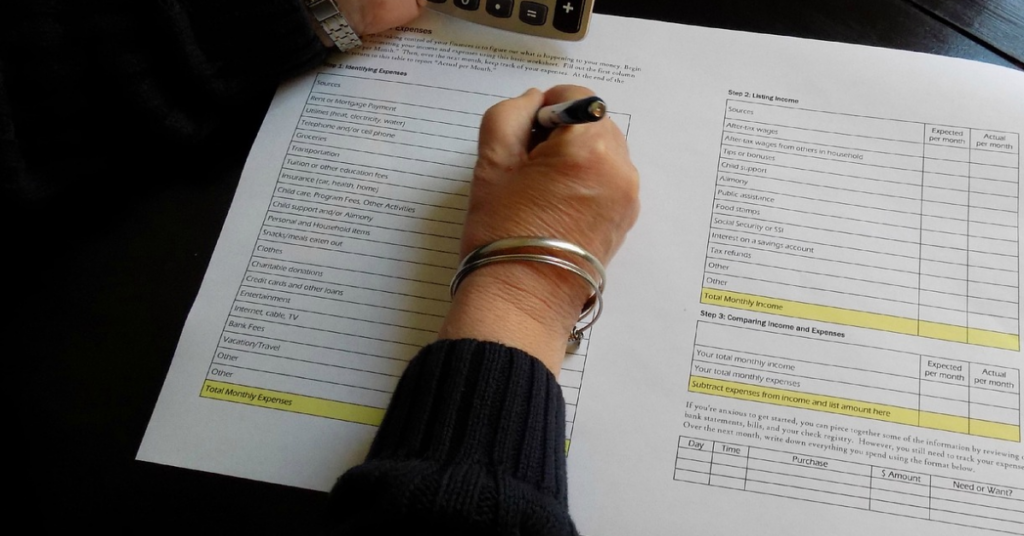On Friday, April 12, our Main Branch located at 1601 22nd Street will close at 10:00 a.m. for the move to our new headquarters.
On Friday, April 12, our Main Branch located at 1601 22nd Street will close at 10:00 a.m. for the move to our new headquarters.
On Friday, April 12, our Main Branch located at 1601 22nd Street will close at 10:00 a.m. for the move to our new headquarters.
Home » Budget Tips

The key to a good budget is including as much information as you can, so that you can adequately prepare and plan. It’s important to keep accurate records of your spending so you’ll spot places where you can save money and know how much you can reasonably spend.
What is your current income? The first step in creating a budget is to total all of your income, or money coming. We recommend you do this on a monthly basis. Include only your take home pay (this is your salary minus taxes and deductions). Your income may also include tips, child support, investment income, etc.
What are your monthly expenses? Next, you’ll need to track your expenses, or money going out. Some of your bills will vary from month-to-month, so use a monthly average. For example, if your cell phone is $45 one month and $55 the next, estimate $50 per month. For annual bills, divide the yearly cost by 12 for a monthly figure.
How should your income be spent? Rent or mortgage payments plus your credit obligations – should not exceed 35 to 40 percent of gross monthly income. The amount you owe on credit cards, monthly car payment, student loans and other monthly payments should not exceed 10 to 15 percent of your take-home pay.
Put it in writing. Document and categorize your expenses. Tally up everything you spend money on. Don’t forget your daily coffee or snacks. Those can add up quickly!
Do the math. The last step in creating your budget is to total all of your expenses and subtract them from your total income.
Money Left Over? Good job! | Income = Expenses? Proceed with Caution | Expenses Greater Than Income? Make Adjustments Immediately! |
Open a savings account at your community bank. | Are you living paycheck to paycheck? Cut expenses and develop a savings plan in case of emergencies or unexpected expenses. | It’s easier to cut back on expenses than to increase your income. Eat out less often. Wait until that movie is on a streaming service. Plan your errands so you don’t drive as much. Save that fancy coffee for a less frequent treat. It all adds up. |
| Already have a savings account? Consider setting up automatic transfers to your savings account or, if you have direct deposit, ask your employer to put a portion of your paycheck in your savings account automatically. | Are you using credit to survive? You shouldn’t charge more than you can afford to pay off each month. Work toward that goal. | Call your utility, phone, cable, cell phone providers. There may be ways to cut those bills that just take a phone call. |
| Does your employer offer a 401(k) or other employee matching savings plan? You are missing out if you aren’t taking advantage of an employer match! | Are you only paying the minimums on your credit card debt? Pay more each billing cycle and stop using your cards until you can afford to pay off the entire balance every month. | Consider increasing your income by getting a second part-time job, working on that side gig you’ve been thinking about, or by working overtime. |
You can take charge of your finances and your life by setting financial goals, planning a budget and sticking to it!
Share This Article
© 2024 West Bank. All Rights Reserved. Member FDIC.
Equal Housing Lender.
© 2024 West Bank. All Rights Reserved.
Member FDIC.
Equal Housing Lender.